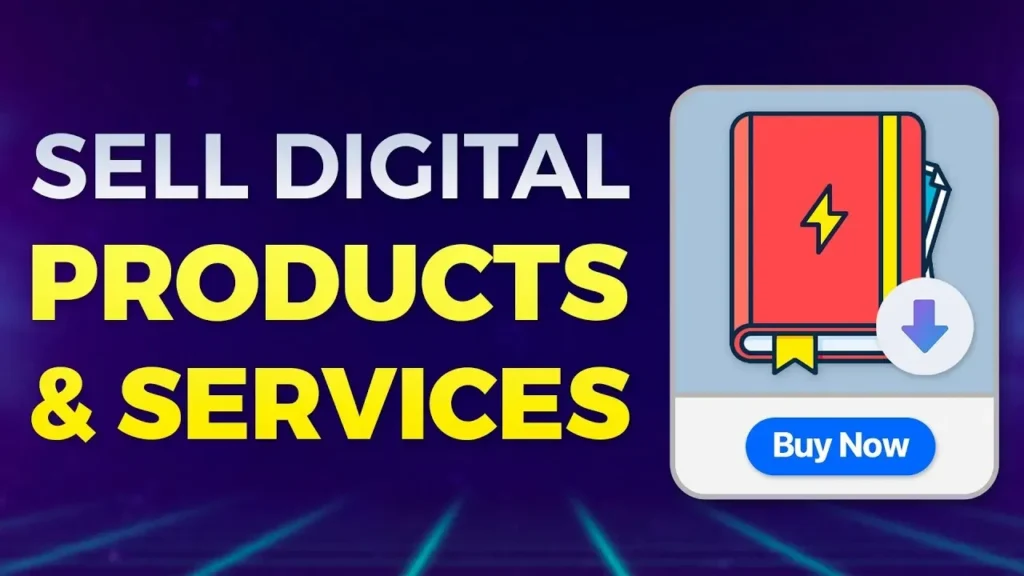Digital Product Marketing : Digital product marketing has become an essential strategy for businesses aiming to thrive in the digital age. As consumers increasingly turn to online platforms for their purchasing decisions, understanding and implementing effective digital product marketing strategies is crucial. This comprehensive guide delves into the core aspects of digital product marketing, offering insights and actionable strategies to help businesses succeed.
Table of Contents
Introduction to Digital Product Marketing
Digital product marketing refers to the strategies and tactics employed to promote and sell products or services through digital channels. Unlike traditional marketing, which relies heavily on physical media and in-person interactions, digital product marketing leverages the internet and electronic devices to reach and engage consumers. This approach allows businesses to connect with a global audience, tailor their messaging, and measure the effectiveness of their campaigns in real-time.
🚀 Take Your Digital Product Marketing to the Next Level!
Are you ready to unlock the full potential of digital product marketing and skyrocket your sales? Whether you’re launching a new digital product, optimizing your existing marketing strategies, or looking for game-changing growth hacks, now is the time to take action!
✅ Master SEO & Content Marketing – Dominate search engines and drive organic traffic!
✅ Leverage AI & Automation – Stay ahead of the competition with cutting-edge marketing tools!
✅ Maximize Conversions – Use proven strategies to turn visitors into loyal customers!
✅ Scale Your Business Faster – Implement powerful growth-hacking techniques for rapid success!
Don’t let your digital products get lost in the crowded online marketplace. Stand out, attract more buyers, and maximize your revenue today!
🌟 Visit Go PLR Digital Products Now & Supercharge Your Digital Marketing Success! 🌟
💡 Don’t wait—your next breakthrough in digital product marketing starts NOW! 🚀
Key Components of Digital Product Marketing
Effective digital product marketing encompasses several key components, each playing a vital role in reaching and engaging the target audience.
Search Engine Optimization (SEO)
SEO involves optimizing a website and its content to rank higher in search engine results pages (SERPs). By targeting specific keywords and improving site structure, businesses can increase organic traffic and visibility. For instance, incorporating relevant keywords like “digital product marketing” throughout your website can enhance search engine rankings.
Content Marketing
Content marketing focuses on creating and distributing valuable, relevant, and consistent content to attract and retain a clearly defined audience. This includes blog posts, videos, infographics, and more. High-quality content not only educates and informs but also establishes the brand as an authority in its industry.
Social Media Marketing
Social media platforms offer businesses the opportunity to engage with their audience, share content, and promote products or services. Platforms like Facebook, Instagram, and LinkedIn allow for targeted advertising and foster community building around the brand.
Email Marketing
Email marketing remains a powerful tool for nurturing leads and maintaining customer relationships. By sending personalized and relevant content directly to subscribers’ inboxes, businesses can drive conversions and encourage repeat purchases.
Pay-Per-Click Advertising (PPC)
PPC advertising allows businesses to display ads on search engines and other platforms, paying a fee each time the ad is clicked. This method provides immediate visibility and can be highly effective when targeting specific keywords and demographics.
Growth Hacking in Digital Product Marketing
Growth hacking is a subfield of marketing focused on the rapid growth of a company. It involves conducting experiments, such as A/B testing, to improve the customer journey and scaling successful ideas while modifying or abandoning those that do not yield results. This approach is particularly beneficial for startups and companies aiming for rapid expansion with limited resources.
A growth hacking team typically comprises marketers, developers, engineers, and product managers who focus on building and engaging the user base. Techniques used include persuasive copy, email marketing, SEO, and viral strategies, all aimed at increasing conversion rates and achieving rapid growth. Companies like Dropbox and Airbnb have successfully utilized growth hacking techniques to build their brands and improve profits.
Leveraging AI in Digital Product Marketing

Artificial Intelligence (AI) is revolutionizing digital product marketing by automating processes, analyzing consumer behavior, and personalizing customer experiences. AI-powered tools can handle tasks such as ad planning and buying, content creation, and customer segmentation. For example, AI tools can automate nearly all aspects of digital ad campaigns, using parameters like budget and sales goals to let algorithms decide ad placement, targeting, and even ad design.
However, the adoption of AI in marketing also raises challenges regarding control and transparency. Marketers may find it disconcerting that they can’t oversee decisions made by AI, even though the tools reportedly drive sales and improve key outcomes. Despite these concerns, many firms adopt AI tools due to their observed effectiveness in generating traffic and sales.
Case Studies of Successful Digital Product Marketing
Examining real-world examples provides valuable insights into effective digital product marketing strategies.
Nike’s Digital Transformation
Nike has embraced digital product marketing by integrating technology into its products and marketing strategies. For instance, the company collaborated with AKQA to create an interactive LED basketball court named “House of Mamba” for its Nike Rise campaign in China. This innovative approach engaged young basketball players and showcased Nike’s commitment to blending technology with sports.
Headway’s AI-Driven Ad Performance
Headway, a Ukrainian edtech startup, significantly improved its ad performance by leveraging AI tools such as Midjourney and HeyGen. By implementing a company-wide AI focus, Headway achieved a 40% increase in ROI for video ads, reaching 3.3 billion impressions in the first half of 2024. This case demonstrates the potential of AI in enhancing marketing effectiveness and efficiency.
Conclusion
Digital product marketing is a dynamic and ever-evolving field that requires businesses to stay ahead of trends, leverage cutting-edge technologies, and implement effective strategies. From SEO and content marketing to AI-powered automation and growth hacking, the possibilities for reaching and engaging your audience are vast.
By understanding the key components of digital product marketing and learning from successful case studies, businesses can craft high-impact marketing campaigns that drive sales and build brand authority. While challenges such as AI transparency and changing algorithms exist, the rewards of mastering digital marketing far outweigh the risks.
To truly succeed in digital product marketing, businesses must remain adaptable, embrace innovation, and continuously refine their strategies. The digital landscape is competitive, but with the right approach, your brand can thrive.


